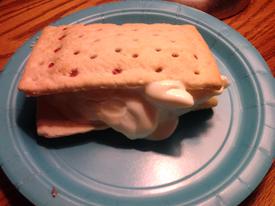Ketegonic diet

johanna123456
Posts: 13 Member
hello i would like if you could explain me what this diet is? (if it's healthy or not)
i have heard that it's a low carb diet so how many carbs i am allowed to eat and we carb i can eat and which no?
also how can i get into ketosis
if i get off this diet after a month and start eating carbs will i gain fat back?
will i lose fat or weight?\
how long will it take to lose 5 kg? (Normal weight)
do you think is a good fat burning diet and if not do you know any other diet or tip to follow in order to burn fat?
(i know lots of question;p
anyway thanks in advance)
i have heard that it's a low carb diet so how many carbs i am allowed to eat and we carb i can eat and which no?
also how can i get into ketosis
if i get off this diet after a month and start eating carbs will i gain fat back?
will i lose fat or weight?\
how long will it take to lose 5 kg? (Normal weight)
do you think is a good fat burning diet and if not do you know any other diet or tip to follow in order to burn fat?
(i know lots of question;p
anyway thanks in advance)
0
Replies
-
sounds like a bunch of made up hocus pocus to me.

Here is some info to back that up.
http://www.bodyrecomposition.com/research-review/ketogenic-low-carbohydrate-diets-have-no-metabolic-advantage-over-nonketogenic-low-carbohydrate-diets-research-review.html0 -
I have those same questions. Some of my male friends are on it and so far it's worked great for them. I know that it is meat heavy (yay bacon) and foods that are high in fat. I don't know much more then that cause they won't really explain it to me.0
-
hello i would like if you could explain me what this diet is? (if it's healthy or not)
i have heard that it's a low carb diet so how many carbs i am allowed to eat and we carb i can eat and which no?
also how can i get into ketosis
if i get off this diet after a month and start eating carbs will i gain fat back?
will i lose fat or weight?\
how long will it take to lose 5 kg? (Normal weight)
do you think is a good fat burning diet and if not do you know any other diet or tip to follow in order to burn fat?
(i know lots of question;p
anyway thanks in advance)
Probably less than 50g of carbs, depends where you are and how it's labelled. High fat, modest protein, low carb.
Ketosis is what happens when you eat less carbs that your body would ordinarily use as glucose. If you eat enough fats and oils, say >60% of your calories, you're highly likely to get there.
Low carb diets involve a loss of water weight (and sodium) that might be a couple of kg. If you go back to eating high carb that 2kg will be re-gained, it's mainly water and glucose (actually glycogen).
Fat you lose will not be regained automatically unless you start to eat at a calorie surplus.
10 weeks is a sensible time to lose 5 kg.0 -
Here is some basic information on it, and how to configure MFP for it, http://cavemanketo.com/configuring-mfp/0
-
The ketogenic diet is what Atkin's is, basically. You eat only protein and fat, no (or very low) carbs. I don't think it is necessarily dangerous unless you are diabetic. Lot of people have lost weight doing this, but it isn't a very sustainable diet. You are probably better off getting all your macros and regulating calories overall.0
-
It's more than just high-protein/low carbohydrate.
The basic gist of it: Ketones are created and used by your body as energy in place of protein and fats. When you rid yourself of those, your body will begin to burn off other sources of energy (fat stores, proteins, etc).
If you're trying to build muscle while losing weight/burning fat, I really wouldn't recommend it - as it may induce a state of catabolism rather than raising your anabolic rate. If you're going strictly for weight loss, then try it out.
Sidenote: Any change in eating habits that requires you to eat entirely one way should be suspect. Balance is key to successful, long-term effects.0 -
sounds like a bunch of made up hocus pocus to me.

Here is some info to back that up.
http://www.bodyrecomposition.com/research-review/ketogenic-low-carbohydrate-diets-have-no-metabolic-advantage-over-nonketogenic-low-carbohydrate-diets-research-review.html
It's not hocus pocus, it's a well-established and researched dietary approach that's been around since the 1920's, originally designed to treat epileptic children. They soon discovered it controlled blood glucose levels.0 -
I had a lady at work do this (doctor supervised) and lost 100 pound but she was probably around 300+ to start out with. She looks great but it is very limiting.0
-
0
-
I had a lady at work do this (doctor supervised) and lost 100 pound but she was probably around 300+ to start out with. She looks great but it is very limiting.
Be careful of those. I did one for a SHORT time. 500-800 cals a day, vitamin injections, appetite suppressants... Not healthy at all.0 -
It should be added that the reason the ketogenic diet works is that it creates a caloric deficit. Nothing really too magical about it.0
-
sounds like a bunch of made up hocus pocus to me.

Here is some info to back that up.
http://www.bodyrecomposition.com/research-review/ketogenic-low-carbohydrate-diets-have-no-metabolic-advantage-over-nonketogenic-low-carbohydrate-diets-research-review.html
It's not hocus pocus, it's a well-established and researched dietary approach that's been around since the 1920's, originally designed to treat epileptic children. They soon discovered it controlled blood glucose levels.
Were is your study on it? I just posted a link to a review about a study. I call shenanagens. Maybe its great for epileptic children,.0 -
A very thorough (yet manageable) overview of Keto can be found at the subreddit r/keto:
http://www.reddit.com/r/keto/wiki/faq
Please do plenty of research before making the decision to start a ketogenic diet. You can expect surprising weight loss in the beginning due to water weight and then steady weight loss with minimal plateaus. Keto is primarily followed for weight loss and many people transition from keto into modified-keto or paleo 2.0 diets to maintain weight loss with greater dietary freedom.
If you have any specific questions, feel free to ask. I'm not very far into my keto diet (2 weeks) but I could certainly help you with meal ideas and what-to-avoid.0 -
Blast! Beat me to it!0 -
You should read "The South Beach Diet" Book, also I'm currently doing the Dukan Diet by Dr. Dukan. You won't get all the facts unless you read the books about the research behind these diets.0
-
The ketogenic diet is what Atkin's is, basically. You eat only protein and fat, no (or very low) carbs. I don't think it is necessarily dangerous unless you are diabetic. Lot of people have lost weight doing this, but it isn't a very sustainable diet. You are probably better off getting all your macros and regulating calories overall.
Actually, it's just the opposite if you are diabetic. Those with metabolic disorders benefit greatly from a ketogenic diet. My endocrinologist highly recommends a LCHF approach.0 -
sounds like a bunch of made up hocus pocus to me.

Here is some info to back that up.
http://www.bodyrecomposition.com/research-review/ketogenic-low-carbohydrate-diets-have-no-metabolic-advantage-over-nonketogenic-low-carbohydrate-diets-research-review.html
It's not hocus pocus, it's a well-established and researched dietary approach that's been around since the 1920's, originally designed to treat epileptic children. They soon discovered it controlled blood glucose levels.
Were is your study on it? I just posted a link to a review about a study. I call shenanagens. Maybe its great for epileptic children,.
Heh, better watch out, the Keto Police are all over this board.
Granted, I initially had SOME misconceptions about keto, but after studying it out I've come to the conclusion that it's basically a modified version of Atkins (albeit with uncanny staying power...it's been around, in one form or another, since the 20's).
I think there are some generally good reasons for people with certain conditions to go on a keto diet, however I don't think it's necessary for the average Joe.
This is a good resource: http://www.dietscam.org/basic/myths.shtml0 -
sounds like a bunch of made up hocus pocus to me.

Here is some info to back that up.
http://www.bodyrecomposition.com/research-review/ketogenic-low-carbohydrate-diets-have-no-metabolic-advantage-over-nonketogenic-low-carbohydrate-diets-research-review.html
It's not hocus pocus, it's a well-established and researched dietary approach that's been around since the 1920's, originally designed to treat epileptic children. They soon discovered it controlled blood glucose levels.
Were is your study on it? I just posted a link to a review about a study. I call shenanagens. Maybe its great for epileptic children,.
No shenanigans. Epilepsy, diabetes, PCOS, hypothyroidism, insulin resistance and a whole host of metabolic disorders.0 -
The difference between keto and any other low-carb diet is that you have to be on keto (read as: in ketosis) for weeks for it to actually be doing anything.
You can't just be on keto "sometimes". You either commit to it for the long haul, which is probably 4 weeks at a minimum to evaluate it, or don't waste your time.0 -
The ketogenic diet is what Atkin's is, basically. You eat only protein and fat, no (or very low) carbs. I don't think it is necessarily dangerous unless you are diabetic. Lot of people have lost weight doing this, but it isn't a very sustainable diet. You are probably better off getting all your macros and regulating calories overall.
Actually, it's just the opposite if you are diabetic. Those with metabolic disorders benefit greatly from a ketogenic diet. My endocrinologist highly recommends a LCHF approach.
What I was referring to was the risk of ketoacidosis. I don't doubt there could be benefits to a lower carb approach, but being in ketosis and not having enough insulin to go around can be a big problem. That would be something to ask your doctor about, especially if you are type 1.0 -
It should be added that the reason the ketogenic diet works is that it creates a caloric deficit. Nothing really too magical about it.
Your not entirely correct.
I eat very few carbs.
Im at 1800-1900+ cals a day which is not a deficit.
I am lifting, so who ever suggested earlier its not recommended for ppl who are lifting is wrong.
Its not just for weight loss.
Its not about eating your weight in Bacon.
Its about choosing healthy fats that come from such sources as Meats, Seeds, Nuts, Certain Oils.0 -
It should be added that the reason the ketogenic diet works is that it creates a caloric deficit. Nothing really too magical about it.
Your not entirely correct.
I eat very few carbs.
Im at 1800-1900+ cals a day which is not a deficit.
I am lifting, so who ever suggested earlier its not recommended for ppl who are lifting is wrong.
Its not just for weight loss.
Its not about eating your weight in Bacon.
Its about choosing healthy fats that come from such sources as Meats, Seeds, Nuts, Certain Oils.
I was only trying to say that the normal rules of weight loss still apply. If you are in a caloric deficit, you lose weight, if you are in a surplus, you gain, not factoring things like a loss of water weight on Atkins, which other posters mentioned as well. Keto is another strategy for creating that deficit (fewer calories in than out).0 -
To be honest low carb left me feeling exhausted and it was a struggle to get through the day. Rate of fat loss didn't increase. Also I lost a lot of muscle mass (noticeably), despite heavy lifting 4 times a week, which no doubt slowed my metabolism0
-
sounds like a bunch of made up hocus pocus to me.

Here is some info to back that up.
http://www.bodyrecomposition.com/research-review/ketogenic-low-carbohydrate-diets-have-no-metabolic-advantage-over-nonketogenic-low-carbohydrate-diets-research-review.html
It's not hocus pocus, it's a well-established and researched dietary approach that's been around since the 1920's, originally designed to treat epileptic children. They soon discovered it controlled blood glucose levels.
Were is your study on it? I just posted a link to a review about a study. I call shenanagens. Maybe its great for epileptic children,.
It is far from hocus pocus.
It was orginally started and developed during the 1920s and was specifically aimed at helping stop seizures in epileptic children who were not responding to the drugs for that condition.
The dietary conditions had to be strictly adhered to in order for it to have any chance of success and in many, many cases it was very successful.
http://www.ncbi.nlm.nih.gov/pubmed/18456557
There is plenty of evidence regarding the Ketogenic Diet on the internet and instead of people calling fake or rubbish, it would be well that the first of all did a little research of their own.0 -
What I was referring to was the risk of ketoacidosis. I don't doubt there could be benefits to a lower carb approach, but being in ketosis and not having enough insulin to go around can be a big problem. That would be something to ask your doctor about, especially if you are type 1.
Diabetic ketoacidosis (DKA) and nutritional ketosis are quite different. DKA occurs with BOTH excessive ketones AND extremely high blood glucose levels. An untreated Type 1 is at greater risk of DKA, especially during an illness. Type 1 diabetics using insulin appropriately and Type 2 diabetics benefit greatly from a low-carb diet and up to moderate ketosis.0 -
I don't think anyone is doubting that this works as a treatment for children.
I just don't see how its any better in an adult to lose weight than just counting calories. You guys put up a good argument. Kudoes!
I'll go back to eating my poptarts and ice cream.0 -
I don't think anyone is doubting that this works as a treatment for children.
I just don't see how its any better in an adult to lose weight than just counting calories. You guys put up a good argument. Kudoes!
I'll go back to eating my poptarts and ice cream.
The idea is to control insulin responses in the body. If eating pop tarts and ice cream work for you, I think that's wonderful and you should keep doing what makes you happy in the long run.0 -
thank you all for answering. I really appreciate it ;(0
-
What I was referring to was the risk of ketoacidosis. I don't doubt there could be benefits to a lower carb approach, but being in ketosis and not having enough insulin to go around can be a big problem. That would be something to ask your doctor about, especially if you are type 1.
Diabetic ketoacidosis (DKA) and nutritional ketosis are quite different. DKA occurs with BOTH excessive ketones AND extremely high blood glucose levels. An untreated Type 1 is at greater risk of DKA, especially during an illness. Type 1 diabetics using insulin appropriately and Type 2 diabetics benefit greatly from a low-carb diet and up to moderate ketosis.
Absolutely, ketosis and DKA are different things. I myself am annoyed when they are confused with each other, especially when the claim is that ketosis is necessarily dangerous. It's a natural adaptation of the body when there is not enough glucose.
I've never really experimented with ketosis and don't really have anything against a ketogenic diet, but I thought DKA was worth mentioning because it could be a valid concern for type 1s.0
This discussion has been closed.
Categories
- All Categories
- 1.4M Health, Wellness and Goals
- 398.1K Introduce Yourself
- 44.7K Getting Started
- 261K Health and Weight Loss
- 176.4K Food and Nutrition
- 47.7K Recipes
- 233K Fitness and Exercise
- 462 Sleep, Mindfulness and Overall Wellness
- 6.5K Goal: Maintaining Weight
- 8.7K Goal: Gaining Weight and Body Building
- 153.5K Motivation and Support
- 8.4K Challenges
- 1.4K Debate Club
- 96.5K Chit-Chat
- 2.6K Fun and Games
- 4.8K MyFitnessPal Information
- 12 News and Announcements
- 21 MyFitnessPal Academy
- 1.5K Feature Suggestions and Ideas
- 3.2K MyFitnessPal Tech Support Questions
















